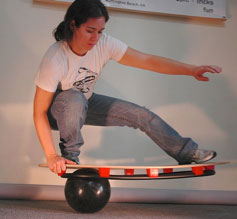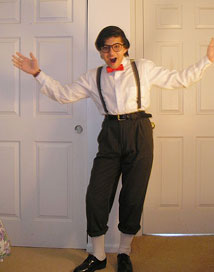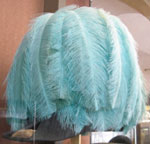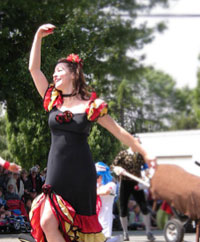Part 1 - TEKS Glossary and Syllabus
- Lesson title: Reference Guides
- Student-friendly summary of lesson: You will be able to use reference guides to help you understand the meaning of unfamiliar words.
- At least 3-5 key words in the lesson, including their definitions from the TEKS Glossary: Affix, cognate, context clues, connotation, denotation, etymology, glossary, homograph, homophone, thesarus
| Key Word | TEKS Clossary |
|---|---|
| Affix | A word element, such as a prefix or suffix, that occurs before or after a root or base word to modify its meaning (e.g., the prefix un- and the suffix -able in unbelievable) |
| Cognate | A word related in meaning and form to a word in another language or languages because of a common origin, e.g., mother (English), moeder (Dutch), moder (Danish), mater (Latin), matr (Sanskrit), etc. |
| Context Clues* | Words or phrases that give readers hints to the meaning of unfamiliar words* |
| Connotation | The emotions or set of associations attached to a word that is implied rather than literal (e.g., feeling blue). |
| Denotation | a direct specific meaning as distinct from an implied or associated idea |
| Etymology | The origin and history of a word; the study of word derivation. |
| Glossary | A list that gives definitions of the hard or unusual words found in a book |
| Homograph | A word that is spelled the same as another word but that has a different meaning, e.g., read (present tense) and read (past tense); in Spanish, vino (la bebida) and vino (del verbo venir), saco (del verbo sacar) and saco (la vestimental). |
| Homophone | A word that is pronounced the same, but not spelled the same, as another word and that has a different meaning (e.g., bear and bare, week and weak; in Spanish, tubo and tuvo, deshecho and desecho). |
| Thesaurus | A book of words or of information about a particular field or set of concepts; especially : a book of words and their synonyms |
Part 2 - CCRS and TEKS
- CCRS and TEKS strand:
- CCRS module:
- CCRS addressed and aligned TEKS:
CCRS |
TEKS | TEKS |
|---|---|---|
II (B) 3 Use reference guides to confirm the meanings of new words or concepts |
1(E) Use a dictionary, a glossary, or a thesaurus (printed or electronic) to determine or confirm the meanings of words and phrases, including their connotations and denotations, and their etymology. |
II (A) 2 Use text features and graphics to form an overview of informational texts and to determine where to locate information. |
Part 3 - Sections of the Lesson
Lesson Section |
Title of Section |
Downloadable Document |
Activity/Enhancement |
|---|---|---|---|
| 1 | Defining Moment | ||
| 2 | Types of Reference Guides |
|
|
| 3 | When is a Dictionary Useful? |
|
|
| 4 | Challenges |
|
|
| 5 | Culinary Concoctions |
|
|
| Testing | A Staple Diet of Words | ||
| Resources | Supporting Resources |
Part 4:
Introduction
The online dictionary at Merriam-Webster.com defines the word “moment” as 1) a minute portion or point of time, 2) a comparatively brief period of time, or 3) a time of excellence. The word “instant” is a synonym for the denotative meaning of these definitions. But what is the connotation of "memory"? What are the emotions and feelings associated with it? Watch as “moment” is defined through the lens of a camera on the 10x10 website. Each picture represents one "moment" in a current event.
Pictures often add connotative meaning to a story. How do the denotative meanings of the dictionary definitions compare with the connotative meaning of the 10x10 images? How do the pictures' definition of "moment" differ from the definitions' meaning of "moment"? Which images were memorable? Which ones would you recommend to a friend? At the same time, which of the two definitions will stick with you?
We can’t always look at pictures to enhance our understanding of a word. Often we need to use reference guides to find out the meaning of challenging words that we encounter when we read. In this lesson, you’ll learn how a dictionary, glossary, or thesaurus can be useful in building your vocabulary. Along the way, you’ll also pick up some impressive words, encounter some verbal buffoonery, and use your vocabulary knowledge to help feed the world.
Types of Reference Guides
Dictionary

We’ll focus on three useful tools. The first is the dictionary. You've probably looked up lists of words in the dictionary, written down the definitions, and then studied for a vocabulary test. That practice alone didn’t help you understand the words’ full, rich, connotative meanings or make you secure enough to use them when you spoke or wrote. You probably retained very few of the words from those lists.
Dictionaries work best when they’re part of a full program to improve your vocabulary, as one exercise on your way to linguistic fitness, as one tool among many to build a robust lexicon. Dictionaries and other reference guides should be balanced with wide reading, and the practice of making educated guesses with context clues, Greek and Latin affixes, and cognates.
Dictionaries are best used for checking out the meanings of words you’ve already identified. Let’s take the word “lexicon” from the text above as an example. You might use this word when you write or speak, so it merits analysis.
- First let’s look for context clues. “Vocabulary” and “linguistic” are used as parallel words in the same sentence. Like these terms, “lexicon” must have something to do with words.
- “Lex” seems like a meaningful word part. If we deduce from the word “dyslexia,” it probably has to do with reading. Research reveals that it’s a Greek combining form that means “word.” “Vocabulary” still seems pertinent—perhaps a good synonym for “lexicon.”
- Next I’ll confirm my reasonable guess by using an online dictionary at http://www.merriam-webster.com.
- The second entry in the definition confirms my guess.
Glossary
A glossary is a mini-version of a dictionary. A glossary is an alphabetical list of the more obscure and challenging words from one particular book. Most of your textbooks have glossaries. While dictionaries include multiple meanings of words, glossaries give only the meaning pertinent to how the word is used in the selection.
Read this next passage to find out how Kerry Michael Wood, a teacher and glossator (one who compiles glossaries), learns a valuable lesson about multiple meanings from a student.
In a class of Advanced Juniors a few years later, some of the students noticed that I was an author of the literature anthology they were using. “You wrote this book?” they asked. I responded that I was one of a group responsible for the questions and other editorial material including the teacher’s manual. “Then you must know all these words in the glossary,” someone said. With mock seriousness I answered in the affirmative.
They had me close my book and started quizzing me on glossary words that they didn’t know the meaning of and figured that I wouldn’t either. I was proud of my performance. The textbook had just been printed, and I remembered quite well the stories and poems included in it. Most of the words they asked me to define were fairly straightforward items like “palazzo,” “ottoman” and “harlequin.” I surprised myself by recognizing their mispronunciation of “passementerie.” I recalled the story it came from and that it referred to fancy edging or ornamentation on cloth or clothing. I was batting a thousand.
My self-esteem hit a peak when, after I correctly defined “sachem,” a student demanded the language it came from. I guessed, “Algonquian,” and enjoyed expressions of wondrous disbelief at my erudition. I stepped from behind my lectern assuming the game was over. A student named Patrick fired a last question.
“'Fly?’ Mr. W.”
Puzzled, I offered, “to move or pass through the air?”
“Alternative meaning,” he said.
Looking down I saw that my trouser zipper was open. Victorious pride dissolved into blushing embarrassment as I reached down and righted the situation.
Thesaurus
While a dictionary is best used to confirm or refute the meaning of a word, a thesaurus is a reference guide you use to search for a new word or a new way of saying something. When you find that you’re overusing a word like “stuff,” you can click on the thesaurus to find alternatives such as junk, gear, or material. And what about the vague and overused word “thing”? Click on the thesaurus to find synonyms such as "object," "article," "item," "gadget," "device," or "contraption" that will add interest and variety to your writing.
You still need to use good judgment when using a thesaurus. In one episode of Friends, Joey writes a paper by making extensive use of this tool. As his friends start to read Joey’s “smart” recommendation letter, they discover he’s used the thesaurus for every word, even for his signature, “Baby Kangaroo.”
Here’s one of Joey’s pre-thesaurus sentences:
“They’re warm, nice people with big hearts.”
Here’s the same sentence, post-thesaurus:
“They’re human prepossessing Homo sapiens with full-sized aortic pumps.”
When is a Dictionary Useful?
To Confirm Meaning
A dictionary works best when you already have some idea of a word’s meaning based on context clues or word parts. When you look up a word, read all the definitions so you can decide which of your reasonable guesses makes the best sense in the passage you’re reading.
Let’s think through an example using the word “tangentially” from Bill Bryson’s essay “So Sue Me.”
Allied with the idea that lawsuits are a quick way to a fortune, whether deserved or not, is the interesting and uniquely American notion that no matter what happens, someone else must be responsible. So if, say, you smoke eighty cigarettes a day for fifty years and eventually get cancer, then it must be everyone else’s fault but your own, and you sue not only the manufacturer of your cigarettes, but the wholesaler, the retailer, and so on. One of the most extraordinary features of the American legal system is that it allows plaintiffs to sue people and enterprises only tangentially connected to the alleged complaint.
Bryson provides a rich context for “tangentially.” In the sentence before the word, the author writes that attorneys of smokers sue cigarette wholesalers and retailers. Clerks at convenience stores don’t seem directly responsible for someone’s lung cancer so “tangentially” must mean “indirectly connected.” When I look up “tangentially” in the dictionary, I find out that it means “incidentally” or “of little relevance.” That confirms what I thought.
To Confirm Pronunciation
Because regional dialects vary, the pecan, a nut used in our Thanksgiving pie, can be pronounced three different ways.
- Pecan can rhyme with “on”: pi-ˈkän
- Pecan can rhyme with “an”: pi -ˈkan
- Pecan can be pronounced with the emphasis on the first syllable and rhyme with “an”: ˈpē-ˌkan
We may pronounce this one nut several different ways, but for most words, we have less freedom. That’s where the audio files of an online dictionary come in. If you have an appointment with the ophthalmologist during school, don’t tell friends that you “excaped.” The word is “escaped.” When you return to school, don’t tell the other pupils that the eye doctor “dialated” your pupils. Say that your pupils were “dilated.”
If you were older and in the market for a house, you’d go to a realtor. Say the word “realtor” aloud. What is the correct pronunciation of the word? Write the answer in your Take Notes Tool. When you’re finished, check your understanding.
The first syllable rhymes with “feel," the second with “fur."
CloseClick here to use Merriam-Webster.com to listen to the correct pronunciation.
Imagine that you’d like to buy that property in an archipelago. How would you pronounce the word “archipelago”? What is the correct pronunciation of the word? Write the answer in your Take Notes Tool. When you’re finished, check your understanding.
"ark"
CloseClick here to use Merriam-Webster.com to listen to the correct pronunciation.
Now you need to furnish the house in that archipelago. You want a matched set of furniture, so you ask for a suite. How do you pronounce “suite”? Does it sound like a set of clothes or like candy? What is the correct pronunciation of the word? Write the answer in your Take Notes Tool. When you’re finished, check your understanding.
"sweet," as in "that candy was almost too sweet"
CloseClick here to use Merriam-Webster.com to listen to the correct pronunciation.
For commonly mispronounced words, see http://www.yourdictionary.com/library/mispron.html.
 To Learn Etymology
To Learn Etymology
Dictionaries are also useful for learning about the etymology of a word. Tracing the origin of a word can make for interesting detective work. Take the word “nerd.” Dr. Seuss probably coined this word in his 1950 book If I Ran the Zoo. Seuss’ narrator Gerald McGrew wanted to add a “nerkle and a nerd” to his imaginary zoo collection.
To Learn Popular Words
Dictionaries are also useful when you want to impress people. It’s cool to know the top ten songs, recording artists, comedians, colleges, so why not know the top ten words? Review the most frequently looked up words in Merriam Webster.
Some of these words—like the four-syllable word “ubiquitous”—just sound smart. Others—like “affect” and “effect” —are commonly looked up because people mix them up.
Use your Take Notes Tool to answer these questions. When you’re finished, check your understanding.
- From this list of ten, what word would you like people to use to describe you?
- From this same list of ten, what word would you not want used to describe you?
- You are a person of integrity.
- You are pretentious, apathetic, cynical, and ambiguous.
Challenges
Using a reference guide is not without some challenges. Definitions can be obscure and unhelpful. For instance, one dictionary referred to a mirror as “any surface that is capable of reflecting enough light without scattering it so that it shows an image of any object placed in front of it.” That’s the kind of definition you have to read twice to understand.
Sometimes dictionaries define words with words we don’t know. For example, a glossary is defined as “a collection of textual glosses.” So what are glosses? Thank goodness Merriam Webster’s dictionary adds a phrase explaining glosses as “specialized terms with their meanings.” That’s a definition you can understand.
Homographs, which are spelled the same but have different meanings, present another challenge. A dog’s bark and a tree’s bark are very different. The homographs “volume” (“how loud something is”), “volume” (“one book in a series of books”), and “volume” (“the amount of space something occupies”) are quite dissimilar. Reading all the entries in a definition is particularly important when you are dealing with homographs like “volume.”
Then there are homophones, which sound the same but are not spelled the same. A homophone pair includes words like “through” and “threw” as in the sentence, “He threw the ball through the hoop.” The title of “An Ode Two the Spelling Chequer” contains two homophones, the common "two" and "to" and the less common “chequer,” which is a British variant for the word “checker.” Move your cursor over this poem line by line to reveal more homophones.
We are accustomed to checking our spelling, but we still make mistakes with homophones. When we misuse common homophones such as “it’s” for “its” or “one” for “won” our spelling programs may alert us with squiggly lines under the words. But the software doesn’t always catch less common homophones such as “world” and “whirled.” Their a challenge. Oops. They’re a challenge.
How can we always be sure we have the word with the meaning we want? The answer is comprehensive: by being alert to homographs and homophones; paying attention to the context; noticing how the word functions as a noun, adjective, or verb; and by confirming the meaning of the word in the dictionary.
Culinary Concoctions
In this section, you’ll use a dictionary to confirm the meanings of some words in excerpts from “What’s Cooking?” by Bill Bryson. When you look up each word, remember to read all the entries and look over all information. Use Merriam-Webster.com to answer the questions in this section. Use your Take Notes Tool to write your answers.
Going to a restaurant is generally a discouraging experience for me because I always manage somehow to antagonize the waitress. This, of course, is something you never want to do because waitresses are among the relatively small group of people who have the opportunity to sabotage items that you will shortly be putting in your mouth.
“Sabotage” is the act of destroying or damaging something deliberately so that it does not work correctly. A waitress, when angry with an antagonistic patron, might accidentally sneeze on that person’s food.
- What is the language of origin of “sabotage”?
- What word describes one who engages in “sabotage”? This word follows the entry for “sabotage” on Merriam-Webster.com.
- What definition applies in this context? The first or the second?
- What is a synonym for gravity as it is used in this passage?
- When you search for the meaning of the word “expedient,” you need to make a choice between an adjective or a noun. Which one will give you meaning that Bryson intended in this context?
- Which printed reference guide is usually more expedient, the glossary or the dictionary?
- Which professional would likely have more flamboyant gestures, an accountant or a conductor?
- What is a synonym for “verve”?
So the waitress sighs lightly and rolls her eyes a trifle, the way you would if you had to recite sixteen salad dressings over and over all day long for a succession of halfwits and reels off the list again. This time I listen with the greatest gravity and attentiveness, nodding at each, and then unfailingly, I choose one that she didn’t mention.
“Gravity,” defined as the “gravitational attraction of the mass of the earth, the moon, or a planet for bodies at or near its surface” is a familiar concept in science. That meaning doesn’t seem to be helpful in this context. “Gravity” also means “dignity or sobriety of bearing.”
When told he can’t get Thousand Island dressing on his salad, Bryson makes another choice.
I can’t possibly ask her to recite the list again, so I ask for the only one I can remember, which I am able to remember only because it sounded so awful—Gruyere and goat’s milk vinaigrette or something. Lately, I have hit on the expedient of saying: “I’ll have whichever one is pink and doesn’t smell like the bottom of a gym bag.” They can usually relate to that, I find.

In fancy restaurants it is even worse because the server has to take you through the evening’s specials, which are described with a sumptuousness and panache that are seldom less than breathtaking and always incomprehensible.
One meaning of the word “panache” is an ornamental tuft on a helmet. In this sentence, Bryson is not referring to headgear; he’s describing the server’s attitude. The second definition “flamboyance in style or verve” highlights the difficulty with some dictionary definitions mentioned earlier. Words are defined using words we don’t know. In this case, we’ll turn this into an opportunity to look up two new words: “flamboyance” and “verve.”
- French
- saboteur
- The second
- Synonyms: Graveness, Earnestness, Intentness, Serious-Mindedness, Seriousness, Soberness, Sobriety, Solemnity, Solemness, Staidness
- noun, the article “the” signals that a noun is necessary.
- the glossary achieves the objective of providing the meaning for the word the most quickly. In print materials, the glossary is contained within the same volume. To check the meaning of a word in the dictionary, you would have to search in another volume.
- conductor
- vivacity, vitality, or enthusiasm
Bryson takes his wife to a fancy restaurant in Vermont for their anniversary. The pretentious waiter lists the specials for the night.
“Tonight,” he began with enthusiasm, “we have a crepe galette of sea chortle and kelp in a rich mal de mer sauce, seasoned with disheveled herbs grown in our own herbarium. This is baked in an inverted Prussian helmet for seventeen minutes and four seconds precisely, then layered with steamed wattle and wozzle leaves. Very delicious; very audacious. We are also offering this evening a double rack of Rio Rocho cutlets, tenderized at your table by your own flamenco dancers, then baked in a clay pit for twenty-seven minutes under a lattice of guava peel and sun-ripened stucco.

Bryson’s account becomes even more humorous once you analyze the pretentious waiter’s vocabulary. This special menu is a mixture of elite culinary terms and not-so-elite baloney. Your task is to sort them out. Which words are related to food and could be used in a description a fine meal? Which words are clearly not related to food? For example, flamenco dancers belong in the Clearly-Not-Food-Related column.
Use http://www.merriam-webster.com to help you make your choices.
Test Your Understanding
To own a word, you must have multiple exposures to it. Reference guides can help you own words. Another way to build your vocabulary is to play word games. In this last section you’ll try a vocabulary game that combines words, a staple of good thinking, with rice, one of life’s staples. Watch this video for an overview of this appealing vocabulary site.
For each vocabulary question answered correctly, 10 grains of rice will be donated by the sponsors to help people living in poverty. Five correct answers yield 50 grains of rice.
Give it a try at http://www.freerice.com/. Then share it with your lexicographically inclined friends.
Resources
Resources Used in this Lesson: Bibliography
Bryson, Bill. I’m a Stranger Here Myself. New York: Broadway Books, 1999.
Byford, Janet. “An Ode to the Spelling Chequer.” Accessed February 10, 2011.
http://www.rajeun.net/spellchecquer.html.
Crane, David, Marta Kauffman, and Dana Klein. “The One Where Rachel’s Sister Babysits.” Friends. Season 10,
Episode 5. Directed by Roger Christiansen. Aired October 30, 2003.
Graves, Michael F. The Vocabulary Book. New York: Teachers College Press, 2006.
Henry, Marsha. Unlocking Literacy: Effective Decoding and Spelling Instruction. Baltimore: Paul H. Brookes
Publishing Co., 2003.
Honig, Bill, Linda Diamond, and Linda Gutlohn. Teaching Reading Sourcebook. 2nd Ed. Novato,
California: Arena Press, 2008.
Nagy, William E. Teaching Vocabulary to Improve Reading Comprehension. Urbana, Illinois: National Council of
Teachers of English, 1988.
Wood, Kerry Michael. “Words.” Helium.com. Posted May 21, 2007.
http://www.helium.com/items/347002-humor-teaching-vocabulary.
